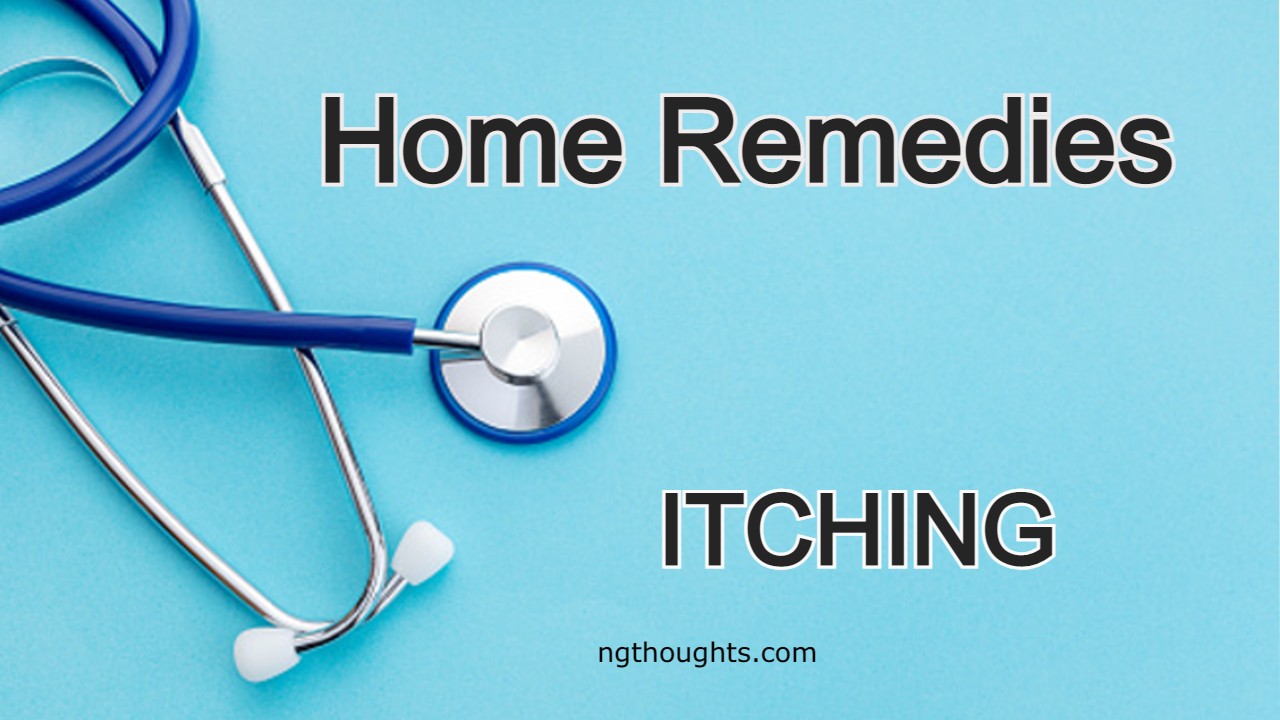Home Remedies For Itching
Itching is a superficial sensation in the skin, probably originating at the border between the epidermis and the dermis. Histamine, a body chemical released in response to contact with an irritant of some kind, is thought to be one of the most common triggers for itching, although there are other chemical mediators in the skin and blood. Itching is in fact one of the most common of problems and is not even regarded as a condition in itself, but is usually seen as a symptom. The medical term for itching is pruritus and this can be a localized or generalized problem. If it is localized it means that the itch simply affects a specific and limited area of the body, while a generalized itch would cause itching all over. A localized itch is quite obviously easy to treat and most treatments can provide some effective relief. A generalized itch, on the other hand, is quite troublesome and in most cases, the causes of itching are not easy to identify.
This poses a problem because any effective itching treatment would necessarily be directed toward the causes of itching. Any other treatments are simply meant to minimize the symptoms or relieve the itch
There are many causes of itching. Common causes of acute itching include allergies to plants, pollens, cats, dogs, feathers, perfumes, cosmetics, cleaning solutions, other chemicals, and smoke. Short-lived skin problems such as very dry skin, fungal infection, lice, scabies, and sunburn are also frequent reasons for itching. Pregnancy can sometimes produce itching and related skin problems.
Causes
- The causes of itching are not always easy to identify as they may not always stem from physiological conditions. Stress and anxiety can at times cause itching and at other times it may aggravate itching, which may be occurring as a symptom of some other underlying condition. The causes of itching could therefore include psychological factors, skin conditions like dry skin or sunburn, metabolic or glandular disorders, like a thyroid condition or kidney disease, or also due to cancers, drug reactions, or simply on account of an allergy or reaction to insect bites, stings, or other irritants. These could be some of the most common causes of itching skin.
- Certain Skin conditions or diseases would require itching treatment from a dermatologist and could include conditions as mundane as dry skin, or conditions like eczema, psoriasis, lichen planus, and urticaria.
- Allergies and skin reactions are common causes of itching on the skin, particularly on the hands and feet, and also on the face. The common culprits of such reactions are cosmetics, dyes used on fabrics, contact with certain metals like the bracelets or necklace you just wore, or also due to allergies to certain medications. Allergic reactions to certain plants like poison ivy would also cause such sensations of intense itching.
- Parasitic creatures like insects are another common cause of skin itching and some causes of this nature would include scabies mites, lice infestations, or any other stinging or biting insects like ants and spiders among others. Itching caused by such factors will usually be localized. Infections could include viral, bacterial, or even fungal infections. Viral infections like chickenpox would cause itching as one of the many other symptoms, while fungal infections like ringworm, jock itch, or athlete’s foot only affect the skin in a specific area. Fungal infections therefore usually have itching as the primary symptom. Yeast infections are also a common cause of itching around the private parts.
- Systemic diseases may also be responsible for itching in some conditions and in such a scenario you would need to visit your doctor for a thorough diagnosis and appropriate itching treatment. Treatment would actually not be directed towards the itching, but towards the underlying condition, while relief is sought from the itching. Some conditions of this nature would include diabetes, hyperthyroidism, hypothyroidism, conditions like liver cirrhosis or hepatitis, leukemia, Hodgkin’s disease, or anemia.
Tips for Itching
- Bath in a tub of warm water added with baking soda or oatmeal to relieve discomfort and itching
- Avoid using soap when washing, instead, use fragrant-free cream bars or aqueous cream
- Apply cold compresses to the itchy area so that it may be kept cool and moist
- Avoid exposure to heat and humidity – keep as cool as possible because heat increases itching
- Apply moisturizer or calamine lotion to the skin while it is damp
- Cut your nails short to avoid scratching
- Take warm baths or showers, avoid hot water
- Wash clothing with a mild detergent and rinse thoroughly with an un-perfumed fabric softener
- Avoid synthetic or wool fabrics, and wear cotton or silk clothing
- Learn to relax by practicing meditation, yoga, or visualization exercises
Home Remedies For Itching
- Drinking one tablespoon of hot pure Ghee in one go, empty stomach in the morning, for a few days to cure itching problem. Ghee should be hot enough but bearable.
- Boil neem leaves in sufficient water for 10-15 minutes. Taking bath with this water helps in curing many skin diseases including Itching.
- Durva (Dub, A grass used to worship Lord Ganesh) juice mixed with Turmeric powder applied on the affected area cures Itching.
- Bottle gourd (Ghee) juice applied on the affected area cures Itching.
- Boil some Coriander (Dhania) seeds in water and add Sugar and filter. Drinking this decoction helps to reduce Pitt and Itching.
- Drinking Mint (pudina) juice and applying Mint juice on the body also cure Itching.
- Applying the paste of grinded Tender Guava leaves and Curd, on the body 2 hours before taking bath helps to cure the Itching.
- Eating raw Cabbage (patta gobi) every day helps to cure Itching.
- Boil some Cumin seeds (Jeera) in water and taking bath with this water helps to cure Itching. A paste made from aloe vera gel and green clay soothes the skin.
- Chamomile cream, calendula lotion, or comfrey ointment can be applied directly to the itchy areas as often as needed. They have anti-inflammatory properties that help to relieve your discomfort.
- Jewelweed, otherwise known as impatiens, can be boiled in a gallon of water, strained, and cooled. The liquid stops itching extremely well. In fact, in clinical trials, it worked just as well as prescription cortisone creams. Jewelweed is a perennial wildflower that should be available at herb shops and through herbalists. It is not the same plant as the flowering annual called impatiens that are commonly sold in nurseries and garden centers.
- An herbal tea made from two parts each of agrimony and chamomile and one part each of stinging nettle and heart’s-ease can be taken three times a day as an aid to soothing the itching. In addition to drinking the tea, dip a clean cloth into it and apply it as a compress to the affected areas for five minutes every half hour, as needed. Other plants containing naturally antihistaminic compounds from which you can make a combination of tea include basil, fennel, ginkgo, oregano, tarragon, tea, thyme, and yarrow. These teas should be used to compress the affected areas of itchy skin, as well as drunk three times a day
- Diluted chamomile, lavender, and rosemary essential oils are soothing and relaxing and help ease itching. You can add up to 10 drops of any of these oils (or a combination) to a tubful of water to make an aromatherapy bath, or you can dilute them in a carrier oil such as jojoba oil and apply it to the hives with a compress.
- Rhus Toxicodendron 30x or 15c is recommended for itching, especially if it is accompanied by joint pain or fever, or if discomfort is worse with the cold or scratching. Take one dose four times a day, up to a total of eight doses.
Author: Dr Izharul Hasan
READ MORE:



Thanks for sharing. I read many of your blog posts, cool, your blog is very good.